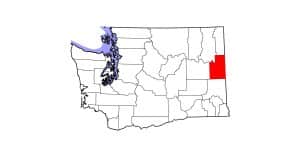How Weather Affects Equine Disease

News about climate change is everywhere these days, but did you know natural disasters and changing weather patterns can also increase your horse’s risk for contracting some of the most serious infectious diseases?
The American Association of Equine Practitioners (AAEP) recommends all adult horses be vaccinated at least annually against five diseases, regardless of the animals’ age, intended use, or travel frequency. These “core” vaccinations protect against West Nile virus (WNV), Eastern and Western equine encephalomyelitis (EEE/WEE), rabies, and tetanus. All these diseases are transmitted naturally through mosquitoes (the primary vector for WNV and EEE/WEE), wildlife (rabies), or contaminated wounds (tetanus). Natural disasters and severe weather patterns often bring excessive rainfall, flooding, and displacement of both wildlife and resident animal populations, making each of these modes of disease transmission much more likely.
The U.S. Environmental Protection Agency (EPA) reports that rising global average temperature is associated with widespread changes in weather patterns and that extreme weather events such as heat waves and large storms are likely to become more frequent and intense with climate change. The EPA also reports that average temperatures have increased across the contiguous 48 states since 1901, with an increased rate of warming over the past 30 years. The prevalence of extreme single-day precipitation events has risen substantially since 1980. The occurrence of abnormally high annual precipitation totals has also increased in recent decades.
So how does this affect your horse? Flooding creates large areas of standing water, which are the perfect breeding ground for mosquitoes. This is further exacerbated by the warm, humid weather that typically follows hurricanes and monsoons, creating massive blooms in mosquito populations and substantially increasing your horse’s risk of mosquito-borne virus exposure. Flooding also forces native wildlife populations to relocate to higher ground. Crowding of wildlife and domestic animal populations on limited dry ground increases horses’ risk of contact with animals such as raccoons, foxes, and skunks—species known to carry the rabies virus.
High winds can damage structures and property and leave dangerous debris in your horse’s environment. Broken fences, downed wires, and sharp objects such as nails and metal roofing can cause lacerations or puncture wounds and increase your horse’s risk of contracting tetanus, which is caused by the bacterium Clostridium tetani.
As if all that wasn’t enough, if a natural disaster forces you to evacuate your horse to a shelter location, he’ll be at risk of contracting infectious diseases that tend to spread when horses commingle in close quarters. These diseases include the respiratory viruses equine influenza and equine herpesvirus as well as the bacterium Streptococcus equi, which causes strangles. All are highly contagious pathogens (disease-causing organisms) known to cause outbreaks of illness during times of stress, travel, and crowding … all of which could be unavoidable realities in a natural disaster evacuation scenario.
Thankfully, most if not all the aforementioned diseases are highly preventable through vaccination. In warm, wet climates, like those of the southeastern United States, where mosquitoes can be active year-round, horses might need more frequent vaccine boosters for mosquito-borne viruses. This might also apply to regions of the country experiencing unusually warm weather in the winter and early spring. Remember, the eve of a natural disaster is not the time to be scheduling a vaccine appointment, so work with your veterinarian to create a comprehensive preventive health care program that keeps your horses protected year-round—on sunny and rainy days alike.
You can find further information about equine infectious diseases and how to prevent them at AAEP.org, equinediseasecc.org, and TheHorse.com/infectious-diseases.
Written by:
SallyAnne L. DeNotta, DVM, PhD, Dipl. ACVIM
Related Articles
Stay on top of the most recent Horse Health news with












